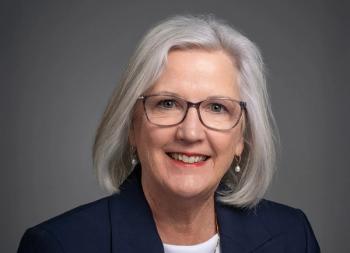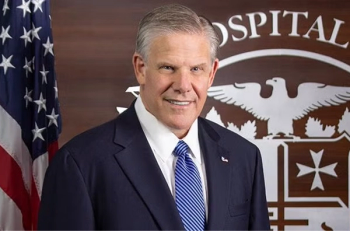
Kaiser Permanente’s acquisition of Geisinger could reveal ‘art of the possible’
Kaiser Permanente is forming a new health organization called Risant Health, and Geisinger will be the first member. Healthcare experts see enormous promise and some open questions.
With Kaiser Permanente announcing its plans to acquire Geisinger Health, health industry leaders say they see intriguing potential, even if there are many questions that will only be answered with time.
The leaders of Kaiser Permanente and Geisinger say they aim to accelerate the expansion of value-based care. The transaction is also another merger involving two well-known systems in different markets, since Kaiser Permanente is based in California and Geisginer is based in Pennsylvania.
Sachin Jain, president and CEO of the SCAN Group & Health Plan, says Kaiser Permanente’s acquisition could yield some big dividends.
“I think there's an incredible opportunity here for both Geisinger and Kaiser to demonstrate the art of the possible,” Jain told Chief Healthcare Executive® in an interview.
With a large integrated system such as Kaiser acquiring Geisinger, Jain sees the potential for the transfer of knowledge and technology that could potentially benefit both organizations and consumers. Potentially, the partnership could make “one plus one equal three,” Jain says.
More health systems are looking at partners in different regions, potentially avoiding a key concern of federal regulators who can be leery of mergers involving hospitals in the same market.
“This will be the latest experiment to test the notion that non-geographically contiguous healthcare organizations could support each other's success through a higher and deeper degree of collaboration,” Jain says.
“The bigger question that I think has yet to be answered is whether these kinds of combinations can improve quality and reduce cost,” he says.
Advancing value-based care
Linda Finkel, chief executive officer of AVIA, says she sees great promise in the deal. AVIA has worked with Geisinger to support the system’s digital transformation efforts.
Finkel told Chief Healthcare Executive that she thinks Geisinger joining forces with Kaiser Permanente will help spur the move to more systems moving from a fee-for-service model to value-based care. Proponents of value-based care say health systems need to be moving away from treating people when they are sick and focusing more on helping people stay healthy.
“The country is moving to value-based care far too slowly,” Finkel says.
“In our work with 450 hospitals, I understand those obstacles: financial incentives on certain payment, implementation complexity, data challenges,” she says. “But it is inevitably the right thing for care and health in the country.” (See part of our conversation with Linda Finkel in this video. The story continues below.)
In Finkel’s view, the Kaiser-Geisinger partnership “creates an enabling path for health systems to move down the journey to value-based care.”
“For me, it was a really exciting development,” Finkel says.
Both Kaiser Permanente and Geisinger have earned reputations as “renowned players in the value-based care space,” Jain says.
“I think what you hope will happen is that these two organizations will come together with the spirit of innovation and partnership and creativity and humility, so that both organizations can really learn as much as they can from each other.”
While Jain says he hopes to see Kaiser Permanente and Geisinger succeed in advancing value-based care, he says, “The proof is always in the pudding.”
“Value-based care is one of these things that lots of people like to talk about, but it hasn't necessarily always played out the way we think it's going to play out,” Jain says. “I think we all have great hope looking at this transaction … time will tell.”
Jain says the health industry as a whole needs to work at helping people stay healthy before they suffer illnesses and complications that are more costly to treat.
“The challenge for health systems for the coming decade is for them to prove that they can actually promote health and not just be there to provide care when people are sick,” Jain says. “And I think that's what is at the heart of the movement towards value-based care, is the notion of prepayment that creates aligned incentives for health systems to actually proactively manage the care of patients.”
“We've seen some examples of that,” he adds. “But it's by no means the default about how most healthcare organizations operate.”
Shared commitment and values
Jain understands the work involved in bringing two organizations together. He’s in the midst of a merger now, as SCAN Group, based in California, announced plans to merge with CareOregon and form a new organization, HealthRight Group. The two health plans agreed to join forces to compete more effectively and make deeper investments in tools and technology.
When two organizations come together, Jain says, “one of the most important things you can do is just have absolute clarity of purpose.”
Kaiser Permanente and Geisinger are undoubtedly coming together for similar reasons, he says.
“Healthcare is becoming increasingly consolidated across all sectors,” Jain says.
With more consolidation among major payers and private equity investing more in healthcare, Jain says, “It’s natural for the health systems and regional health plans to be thinking about what's next for them as well.
Merger activity seems to be picking up in recent months.
With hospitals facing financial headwinds and engaging in more long-term planning, Finkel says she expects more mergers.
“We will continue to see health systems seek complementary partners and those partners may look quite different than they would have looked before,” Finkel says.
Hospital systems are exploring “how scale might truly benefit them in achieving their mission,” Finkel says.
While Finkel says some mergers in the past “have not always delivered on their promise,” she says she has more optimism with Kaiser Permanente’s acquisition of Geisinger.
Given the complexities in combining two health systems, Finkel says there will likely be some “bumps along the journey.
“If this were easy work, we'd all be doing it by now,” she says. “So what I sense is sort of a deep institutional commitment to value-based care, and it will be those shared values that I believe will allow them to overcome. But I'm sure there will be bumps.”
“There is a deep alignment of shared commitment to shared values that I just believe few systems truly have when they come together,” Finkel adds. “And I believe that commitment to mission will be the power.”
The
The FTC has delivered sharp criticism of some deals involving hospitals and health systems in the same markets or adjacent regions, citing concerns about reduced services and higher costs for patients with less competition.
Since Kaiser Permanente is based in California and Geisinger is headquartered in Pennsylvania, Finkel doesn’t foresee regulators attempting to stop the deal.
“I would be surprised if they had difficulty getting approval,” Finkel says. “It's a strategic move that feels likely to benefit communities across both organizations. I'd be disappointed and surprised.
“I think there are only wins in this for patients,” Finkel says.
Even though Jain says there remain open questions about whether Kaiser Permanente’s acquisition of Geisinger will lead to better care or lower costs for patients, he says he’s “quite hopeful that these types of transactions over time will lead to a better healthcare experience.”
“Healthcare is broken everywhere,” Jain says. “If we can kind of dedicate more organizational resources from sophisticated organizations to scale their processes to other organizations, I think that's going to be a win-win.”






























